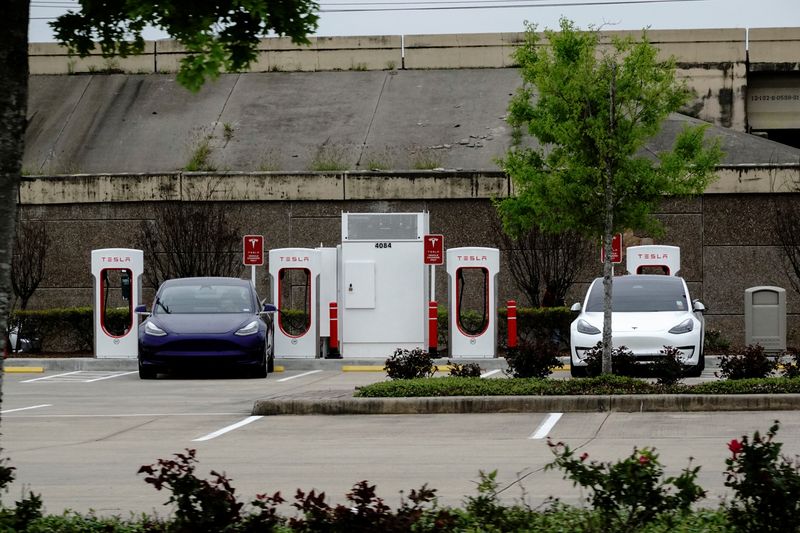(Reuters) -BP's electric charging unit is keen on expanding in the United States after electric vehicle maker Tesla (NASDAQ:TSLA) disbanded its EV charging team, the oil company said on Thursday.
The development comes days after Tesla CEO Elon Musk abruptly laid off employees who ran the EV charging business, but said the automaker still plans to expand the Supercharger network, but at a slower pace for new locations.
"We are aggressively looking to acquire real estate to scale our network, which is a heightened focus following the recent Tesla announcement," a spokesperson for BP (NYSE:BP) said in a statement.
BP added that is prioritizing focus in the north-east, across the Sun Belt, along the west coast and in the Great Lakes region.
Tesla did not immediately respond to a Reuters request for comment.
Tesla's move could present other public EV fast-charging networks such as EVgo (NASDAQ:EVGO) and ChargePoint (NYSE:CHPT) an opportunity to grow their market share.
BP had said in February last year that it planned to invest $1 billion in EV charging stations across the United States by 2030, and in October, placed an order for Tesla's fast chargers worth $100 million.
However, BP has cut over a tenth of the workforce in its electric vehicle charging business and pulled it out of several markets after a bet on rapid growth in commercial EV fleets didn't pay off, company sources told Reuters last month.

The 250-kilowatt BP Pulse-branded chargers will be compatible with both Tesla's North American Charging Standard (NACS), and Combined Charging System (CCS) connectors enabling the charging of EV models from other carmakers.
Automakers have been moving to adopt Tesla's NACS, taking the company's superchargers closer to becoming the industry standard at the expense of the rival CCS.